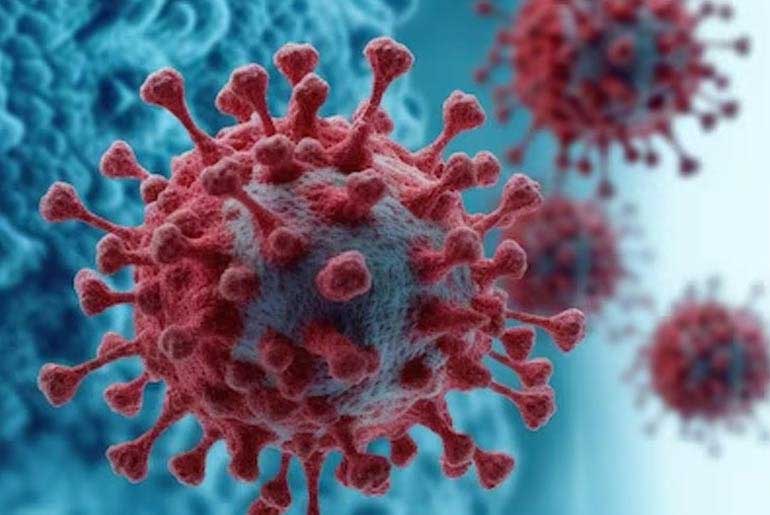The emergence of two new Covid variants, KP.2 and KP 1.1, along with the FLiRT variants belonging to Omicron’s JN.1 lineage, in the US has raised concerns about a potential fresh wave of infections. While these variants are reportedly more infectious than previous Omicron strains, experts suggest that the symptoms remain largely similar. KP.2 has reportedly surpassed the JN.1 variant in the US, although hospitalization rates remain low.
Meanwhile, KP 1.1, another FLiRT variant, is also detected but seems to be less prevalent. The nickname “FLiRT” is derived from the technical names for their mutations, as per the Infectious Disease Society of America. While the emergence of these variants warrants attention, it’s crucial to monitor the situation closely and adhere to public health guidelines to mitigate the spread of Covid-19 and protect public health.
“During last two weeks, a small surge has been seen in United States and there are fears that during summer there, the surge would increase. KP.2 and KP 1.1 make for FLiRT that have been identified as the new variants. As per researcher Dr Eric, this new lineage will probably evade the vaccine and bypass the immunity,” states Dr M Wali, Senior Consultant, Department of Medicine, Sir Ganga Ram Hospital.
New about FLiRT and its symptoms:
FLiRT is a very interesting nickname for a group of Covid variant that have been identified in the US. These are descendants of the JN. 1 variant that came in last December. They carry some fresh mutations that seem to be allowing it to spread easily. Its symptoms are not significantly different from the previously known Covid variants. Flu like symptoms, body ache, fever and in some cases digestive issues. As such based on these symptoms, it would be hard to determine whether you have contracted this variant. A specific genomic taste need to be performed for this purpose, states Dr. Pavithra Venkatagopalan, a microbiologist, coronavirus expert, and Covid Awareness Specialist, Rotary Club of Madras Next Gen.
“FLiRT refers to a group of new SARS-CoV-2 variants that have emerged from the Omicron JN.1 lineage and are rapidly spreading across the U.S. The most prominent FLiRT variant is KP.2, which has become the dominant strain in the U.S and accounting for around 25% of new COVID-19 cases as of April 2024,” states Dr Nikhil Modi, Senior Consultant, Indraprastha Apollo Hospital.
“The FLiRT variants, especially KP.2, appear to have increased transmissibility compared to previous Omicron sub variants. They also show ability to evade immunity from prior infection and vaccines, though the extent is still under study. The symptoms associated with FLiRT infection mirror those of other Omicron subvariants, including sore throat, cough, fatigue, nasal congestion, runny nose, headache, muscle aches, fever, and potential loss of taste or smell,” attaches Dr Modi.
Need to panic about FLiRT:
Dr Wali says that considering people in India were not exposed to mRNA vaccines and have gained immunity widely through infections, there is less reason to panic about a fresh wave.
“mRNA vaccines were given routinely in US and these were associated with impairing the immune function. There were large group of people who did not take the vaccine and therefore they now need to be alert for new variants. In India, that’s not the problem. Because the immunity that we acquired was through infections and a large number of people were infected. Our vaccination programme was also huge,” he attaches.
“While FLiRT has not yet been detected in India, the potential spread of these variants is a significant concern given the country’s high population density and varying levels of vaccination and immunity from previous waves,” states Dr Modi.
“New variants will keep coming and we have to keep alert and follow universal precautions like use of mask, keeping social distancing, not coughing inappropriately and also have influenza vaccination or flu shot. People above 45 years old and children also can be given flu shots. We have to prepare ourselves with influenza like illnesses and Covid,” states Dr Wali.
Dr. Wali emphasizes the importance of updating vaccines to effectively combat emerging variants like KP 1.1 and others. Stressing the need for future vaccination formulations to align with recommendations from the World Health Organization (WHO), Dr. Wali underscores the significance of staying proactive in addressing evolving virus strains. By considering emerging variants in vaccine development, healthcare authorities can enhance the effectiveness of immunization efforts and better protect individuals from the threat of Covid-19. This approach reflects a forward-thinking strategy aimed at staying ahead of the curve and adapting to the dynamic nature of the pandemic.
Disclaimer:
The information contained in this article is for educational and informational purposes only and is not intended as a health advice. We would ask you to consult a qualified professional or medical expert to gain additional knowledge before you choose to consume any product or perform any exercise.








